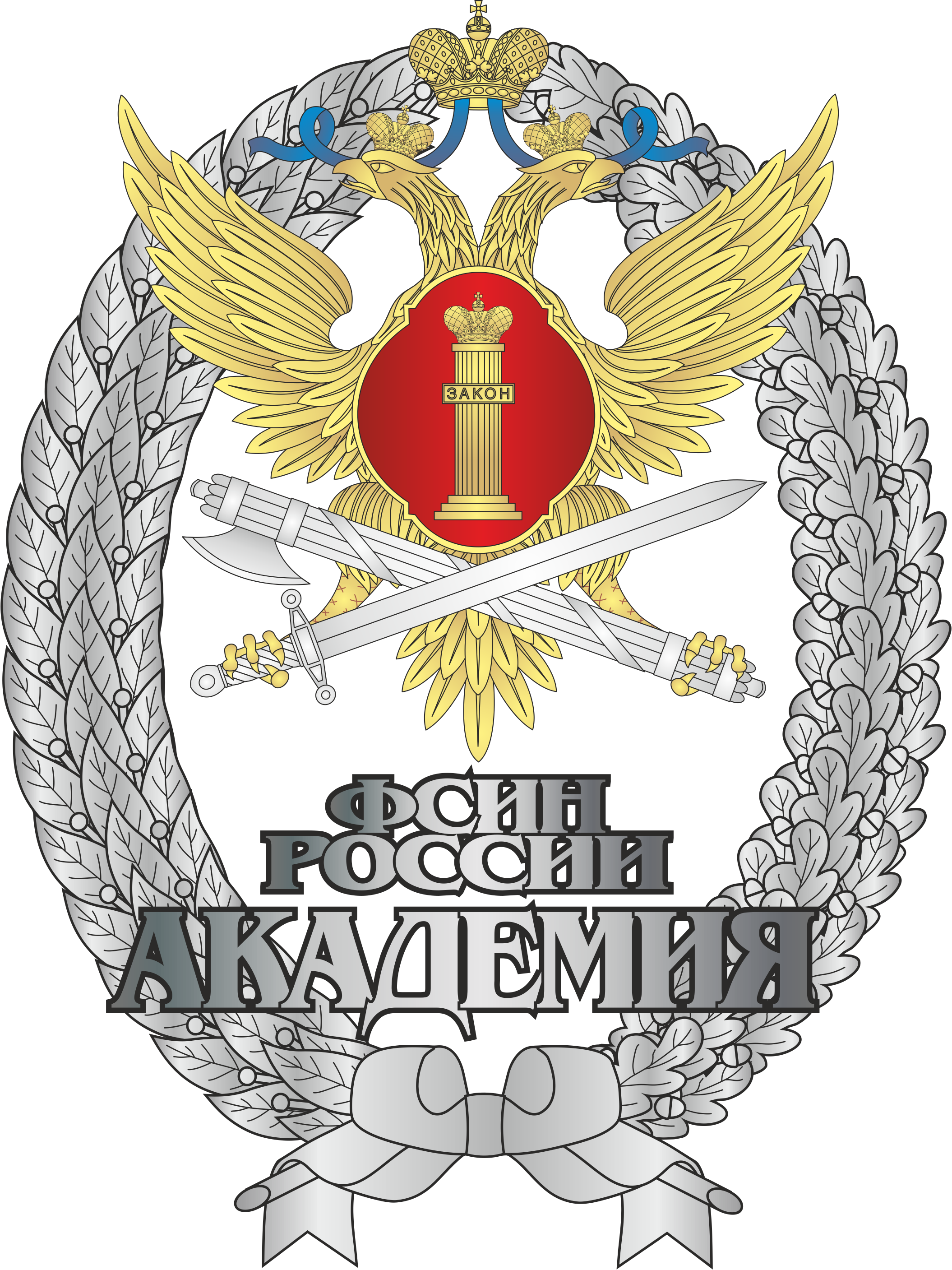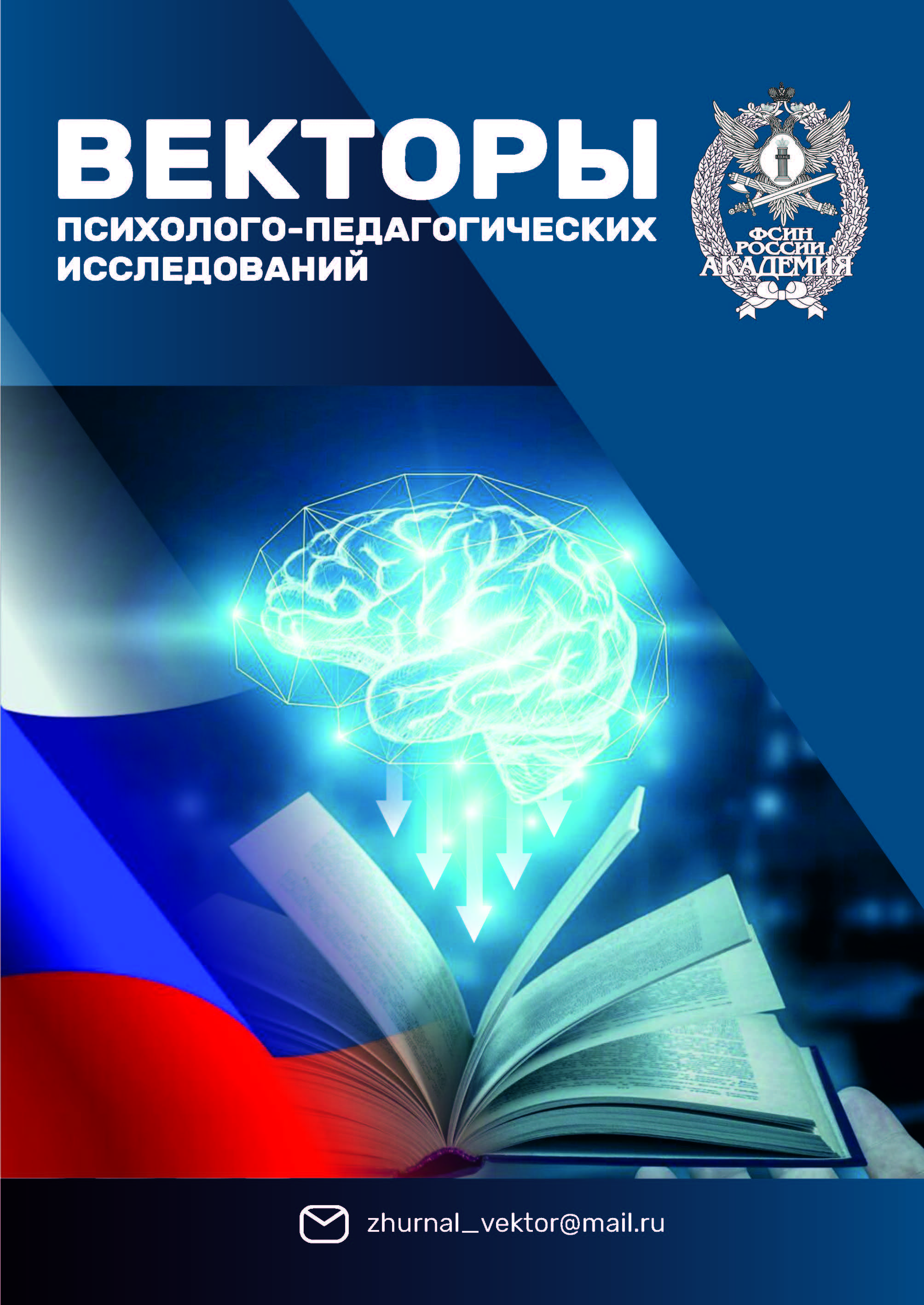Ryazan, Russian Federation
UDC 378.147
The article examines the educational potential of extracurricular work in a foreign language at a non-linguistic specialized university, provides examples of the work of a foreign language teacher on the formation of moral values of cadets and students in the framework of extracurricular activities at the Academy of the FPS of Russia. One of the main tasks of extracurricular work is the development of the personality of cadets and students by forming their moral values. In foreign language teaching this means going beyond the traditional teaching of vocabulary and grammar, updating the cultural, social and ethical aspects of the language. Planning and organization of educational work with cadets and students after classes should be aimed at acquiring new knowledge in a morally oriented context. It is proposed to use various methods, techniques and means of forming the moral values of students and cadets during additional events, individual and group consultations, essays, projects, additional tasks in extracurricular hours working by themselves, as well as online in the electronic educational environment of the university. During extracurricular time, it is suggested to organize linguistic quizzes, thematic projects, watching films with subsequent discussion, analysis of literary sources, visits to theaters and museums. Foreign language texts of classical fiction are of particular interest for the personal education of cadets and students. The role of the teacher as the main communication partner of cadets and students in a non-linguistic university is emphasized.
education, extracurricular work, foreign language, cadets, students, development, non-linguistic university, personality
1. Grebennikova, I. V. 2012, ‘Personality-oriented action as a unit of personality-oriented activity of students’, Bulletin of Tambov University. Series Humanities, iss. 8(112), pp. 108–114.
2. Koval, O. I. 2021, ‘Development of intercultural communicative tolerance among students of a non-linguistic university’, in Professional linguistic education: materials of the 15th International scientific and practical conference, Nizhny Novgorod, September 24, 2021, pp. 49–51, Nizhny Novgorod Institute of Management, a branch of the Russian Presidential Academy of National Economy and Public Administration, Nizhny Novgorod.
3. Kartavtseva, A. P. 2021, ‘The development of tolerance of the personality of university students in the process of learning a foreign language’, Bulletin of Kemerovo State University. Series Humanities and Social Sciences, vol. 5, iss. 1(17), pp. 1–10.
4. Kovaleva, N. S. 2023, ‘The formation of tolerant characteristics in the personality structure’, Modern problems of science and education, iss. 2, pp. 3.
5. Guro-Frolova, Yu. R. 2015, ‘Motivation of teaching as a multicomponent topical psychological and pedagogical problem’, Bulletin of the Volga State Academy of Water Transport, iss. 42, pp. 127–131.
6. Paramonova, E. A. & Medvedeva, N. P. 2024, ‘Internal motivation of a student's personality: approaches to formation and correction’, Pedagogical Bulletin, iss. 32, pp. 65–67.
7. Volkova, V. V. 2019, ‘Speech culture as an indicator of a student's professional and personal development’, in Great Rivers – 2019: materials of the 21st International scientific and industrial forum, Nizhny Novgorod, May 14–17, 2019, p. 136, Volga State University of Water Transport, Nizhny Novgorod.
8. Shilova, L. V. 2024, ‘Actual problems of student speech culture development’, Modern Scientist, iss. 2, pp. 261–265.
9. Aralova, E. V., Yulina, G. N. & Kalita, V. V. 2022, ‘Spiritual education in a digital environment’, vol. 30, iss. 3. pp. 162–171.
10. Volochnyuk, A. A. & Sagan S. N. 2024, ‘Implementation of the principle of multiculturalism in the training of future specialists in the higher education system’, Modern pedagogical education, iss. 4, pp. 108–111.
11. Danilova, L. Yu. & Radoshnova, I. L. 2022, ‘The development of a multicultural orientation of a university student's personality’, Bulletin of the Armavir State Pedagogical University, iss. 4, pp. 38–47.
12. Kuz, E. V. 2023, ‘Educational space as a factor in the formation of a student's personality’, Bulletin of Lugansk State University named after Vladimir Dahl, iss. 6(72), pp. 158–161.
13. Kuptsov, I. I. & Aksenova, G. I. 2019, ‘Teacher of higher education: what it should be’, in L. N. Fedoseeva (ed.), Philological and pedagogical aspects of humanitarian education in non- linguistic universities: materials of the 3rd Interregion scientific and practical conference with international participation, Ryazan, May 24–25, 2019, pp. 281–283, Academy of the FPS of Russia, Ryazan.
14. Aleevskaya, A. O. 2016, ‘Foreign language as a means of forming cultural and moral values of modern students’, in Humanitarian foundations of social progress: Russia and modernity: collection of articles of the International scientific and practical conference, part 5, pp. 6–10, Moscow State University of Design and Technology, Moscow.









